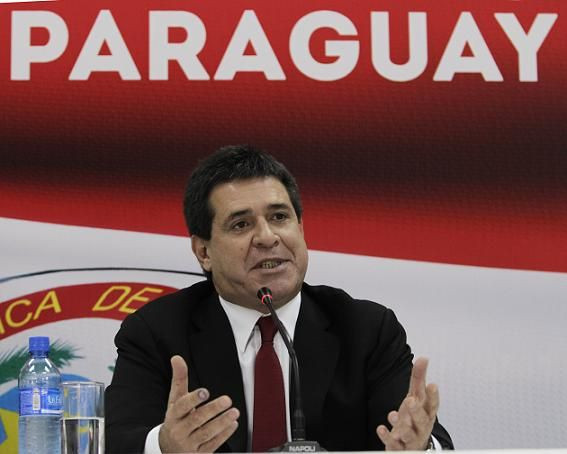No Left Turn: Paraguay Joins South America's Political Right Minority

Paraguay has elected a conservative millionaire businessman as its next president in stark contrast to South America’s majority of leftist and left-leaning leaders.
President-elect Horacio Cartes, who owns some two dozen businesses, including the country’s largest tobacco company and a bank, returned the conservative Colorado Party to power, defeating the centrist Liberal Party candidate Efrain Alegre by a nine-point margin at the polls.
Cartes is a political newcomer, having never even voted in any previous elections and only joining the Colorado Party in 2009.
The election itself was riddled with accusations of vote-buying, but the lack of public protests revealed the disillusionment among many with Paraguay’s political process, particularly in light of the impeachment and removal of former President Fernando Lugo in 2012.
The Colorado Party had previously held power in Paraguay for 60 years until 2008, a period which included the 35-year military rule of Gen. Alfredo Stroessner from 1954 to 1989.
In 2008, Lugo, a former Catholic bishop and the unifying figure at the head of a broad left-leaning coalition, ended the Colorado Party’s long reign and embarked the country on a path of progressive social and economic reforms.
Lugo was later impeached and removed from office in 2012, following a botched police eviction of some 150 peasant farmers who were occupying a private estate that they said had been taken from them during the Stroessner regime. Six police officers and 11 farmers died after a clash broke out between the two sides.
Lugo’s vice president, Federico Franco, a member of the Liberal Party, which had initially backed Lugo in the 2008 election, but later withdrew from his political coalition, became president amid vocal opposition from many South American leaders, who characterized the action as a parliamentary coup d’etat.
The regional economic bloc, Mercosur, which includes Brazil, Argentina and Venezuela, suspended Paraguay’s membership after Lugo’s removal.
The outrage over the Lugo affair, both domestically and within the region, no doubt damaged the standing of the Liberal Party and gave the Colorado Party the opportunity it needed to reclaim power.
Unlike Lugo’s successor, Franco, South American leaders have acknowledged Cartes’ presidency and expressed a willingness to admit Paraguay back into the fold of regional trade and politics.
Cartes himself has expressed a desire to achieve Paraguay’s reinstatement in Mercosur despite the bloc’s left-leaning membership.
“I’ve heard so many things about Mercosur: that we should abandon the bloc, but that would be sheer nonsense,” Cartes said in a news conference on Sunday, MercoPress reported.
“Even when many aspects can be improved Mercosur is too important for us, jobs, investment, and my policy will be the quickest possible return to Mercosur,” he added.
Meanwhile, the political rivalries within South America appear to be fading amid the region’s deepening economic integration.
Indeed, other right-leaning governments such as Chile and Colombia are highly dependent on trade and economic agreements with their South American neighbors.
The region is nevertheless still largely on the left of the political spectrum but right-leaning governments are now seen as economic partners rather than political adversaries, allowing for a more diverse yet still cohesive atmosphere of diplomacy.
© Copyright IBTimes 2024. All rights reserved.





















